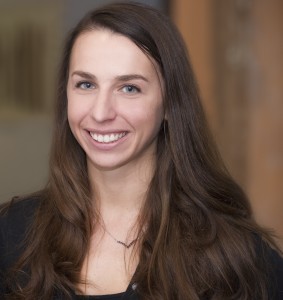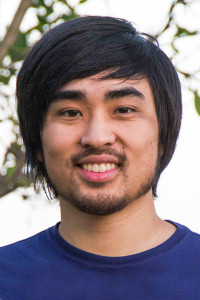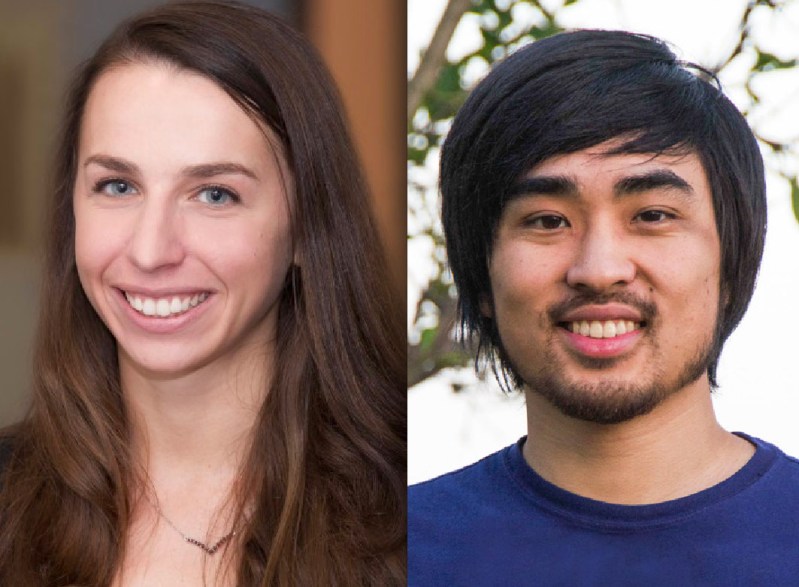Rachel Silverman ’09 and Jerry Lee ’08 M.S. ’09 have been selected as recipients of the 2013 Gates Cambridge Scholarship, granting them full scholarships to pursue graduate studies at the University of Cambridge.
According to a press release issued by the Gates Cambridge Scholarship program, the program drew 769 applicants from the United States this year, ultimately selecting 39 scholars from 36 universities. Fifty scholars from other countries will be chosen later this year.
Diane Murk, a student affairs officer at the Bechtel International Center, said that 26 Stanford graduates have been selected as Gates Cambridge Scholars since the program’s inception in 2000. Approximately two to three Stanford students have received the scholarship every year.
John Pearson, director of the Bechtel International Center, said that because the Gates Scholarship does not require a university endorsement, it is difficult to determine how many Stanford students have applied. However, he estimated that the program receives between 10 and 12 applications from Stanford graduates each year.
“Even though we don’t have to endorse [applicants], we are here to advise them,” Pearson said.
The Bechtel Center offers mock interviews and helps connect applicants to previous Gates scholars who can answer their questions about the program and the application process from their own experiences.
Both Silverman and Lee will be pursuing an M.Phil. degree at Cambridge. Silverman plans to study public health, while Lee intends to study epidemiology.

Silverman, who majored in economics and international relations at Stanford, said that she was initially attracted to the Gates Scholar program because of her interest in the University of Cambridge.
“It is incredibly beautiful, with so many traditions and such a vibrant academic, intellectual culture,” Silverman said. “I also wanted a program where I could dive into learning new public health skills, and I thought the Cambridge program was really focused on that.”
After graduating from Stanford, Silverman worked for the National Democratic Institute and then the Center for Global Development. She decided to apply to graduate school after realizing that she needed a master’s degree to advance her career in the field of public health.
According to Silverman, the application process involved submitting an additional essay and letter of recommendation along with the standard application to the University of Cambridge. While evaluating applications for admission to Cambridge, each department at the University ranks applicants for review by the Gates Foundation, and the Foundation selects applicants to interview.
Silverman was invited for an interview on Feb. 1 in Washington, D.C., where a panel quizzed her about the biological sciences, her academic area of choice.
“They ask you tough questions about why you want to do what you want to do and more probing questions about the subject matter, including very pointed questions about my views on different public health and global health issues,” Silverman said.
Though Silverman graduated four years ago, she took advantage of Stanford’s resources throughout the application process. She received a letter of recommendation from Grant Miller, associate professor of medicine, and the Overseas Resource Center put her in touch with a previous Gates scholar.
Lee also requested letters of recommendation from Stanford professors, including Professor of Medicine John Cooke. After graduating from Stanford, Lee taught biology at Live Oak Academy in San Jose. He applied for a research position in Cooke’s lab in Jan. 2010 and was selected out of a “really great field of applicants,” according to Cooke.

“I was very happy with the choice I made, because he fit right in,” Cooke said. “He was a team player, diligent, meticulous, and immediately rolled up his sleeves and started getting work done.”
Cooke said that Lee was involved with creating models of vascular disease in mice and described Lee as an adept animal surgeon who was extremely creative and eager to explore new things.
“Just being involved in the technical aspects of the research wasn’t enough for Jerry,” Cooke said. “He wanted to get in on the intellectual exchange, creativity and innovation in the lab.”
Lee said that he applied to the Gates Scholarship after he “fell in love” with Cambridge’s Cardiovascular Epidemiology Unit. He submitted his application shortly before the Oct. 16 deadline and said that he was shocked when he received the acceptance email on Feb. 5.
“I remember scrolling down, and I was like, ‘I didn’t get it — this is too formal-sounding,’” Lee said. “Then I saw I got it, and I was really surprised and happy.”
Lee and Silverman cited their Stanford education as a crucial factor in their selection as Gates scholars.
“I think the biggest thing that Stanford helped me with was really its research opportunities,” Lee said.
According to Silverman, the skills she developed at Stanford — such as thinking critically, holding her own during a panel interview and effectively articulating her views — proved to be invaluable during the application process.
“I definitely think that the education that I received at Stanford was, first of all, essential to any success in my career thus far, and also the key to being eligible for the scholarship,” Silverman said. “Without going to Stanford, I don’t think I would have this opportunity.”
